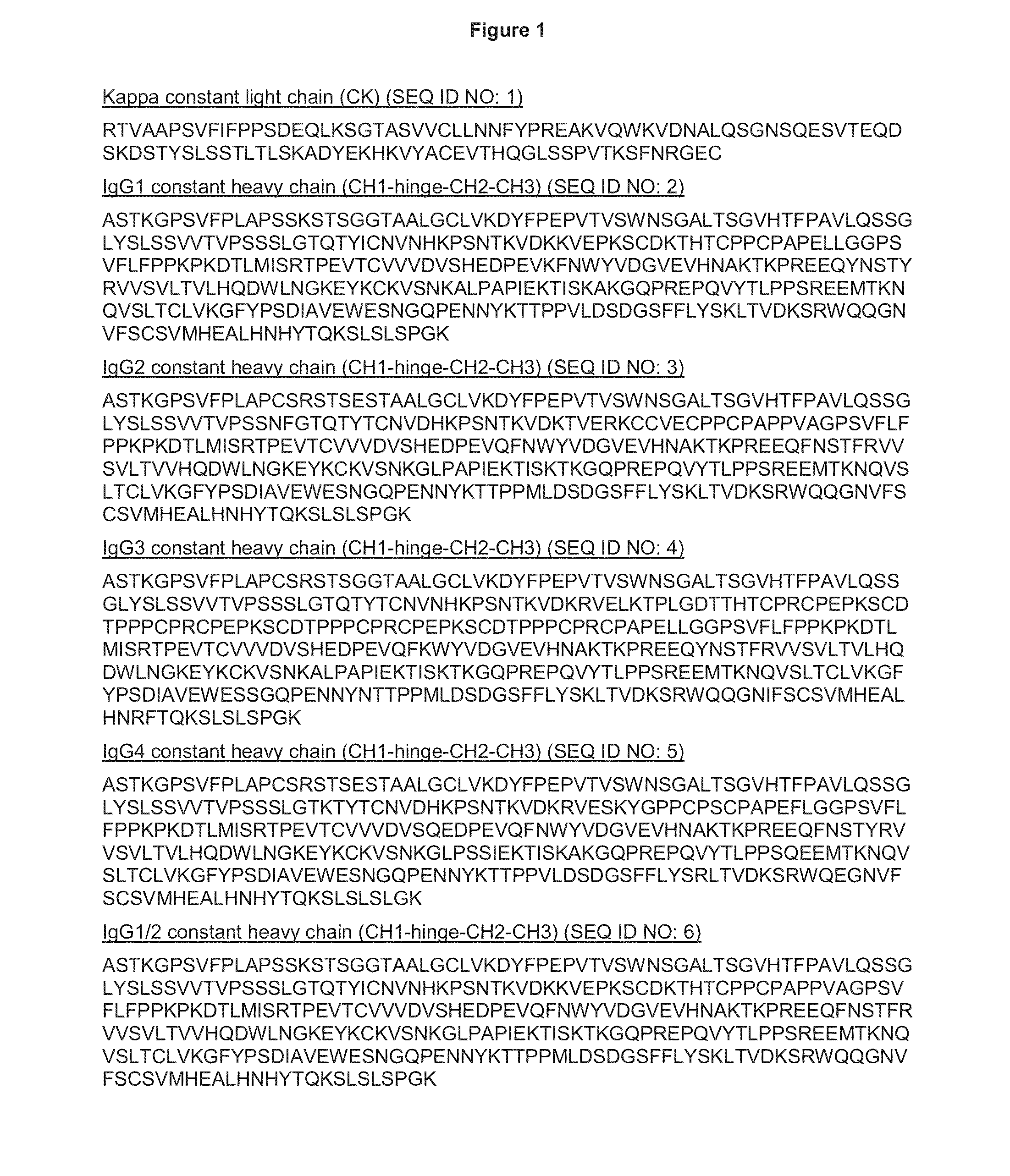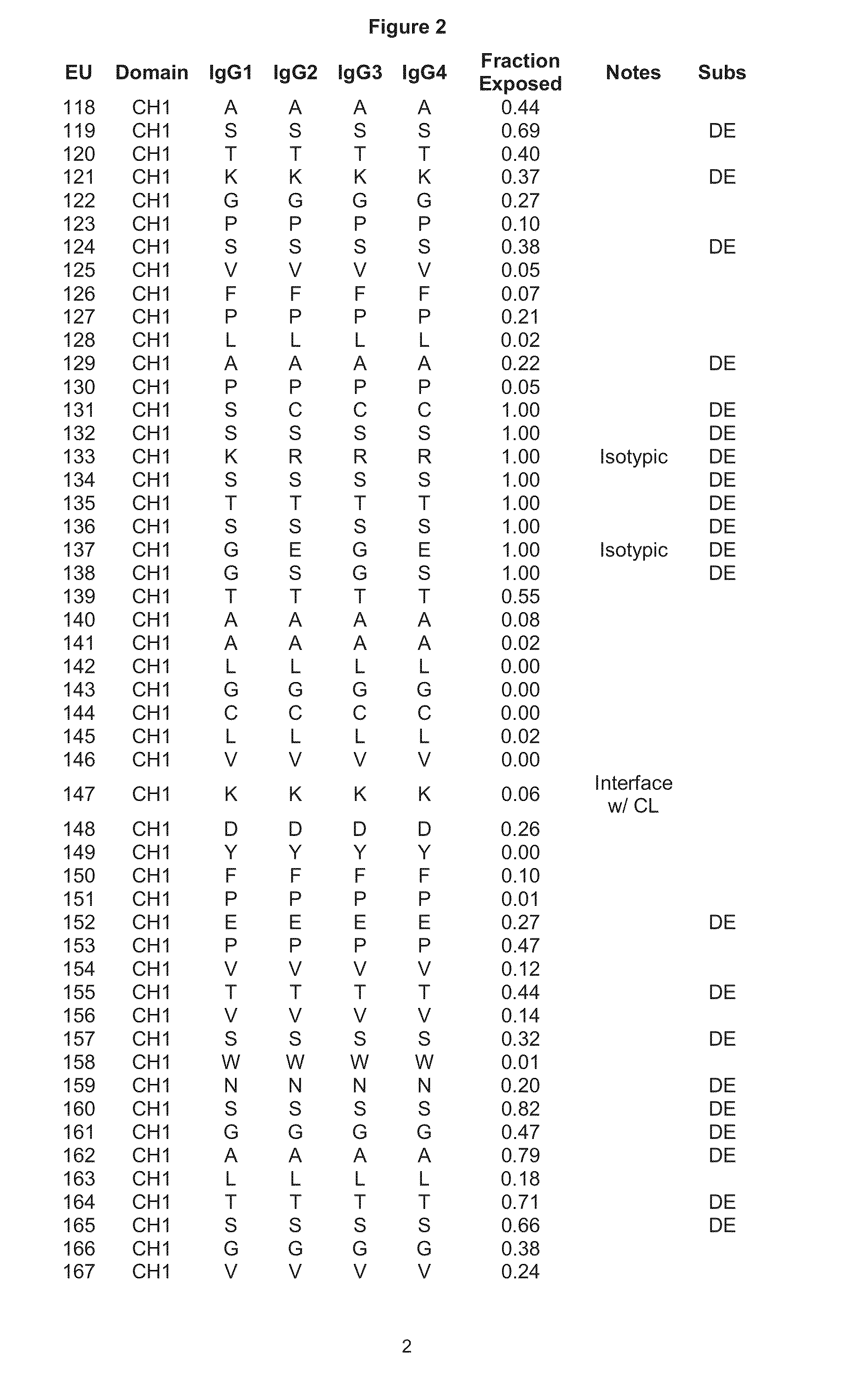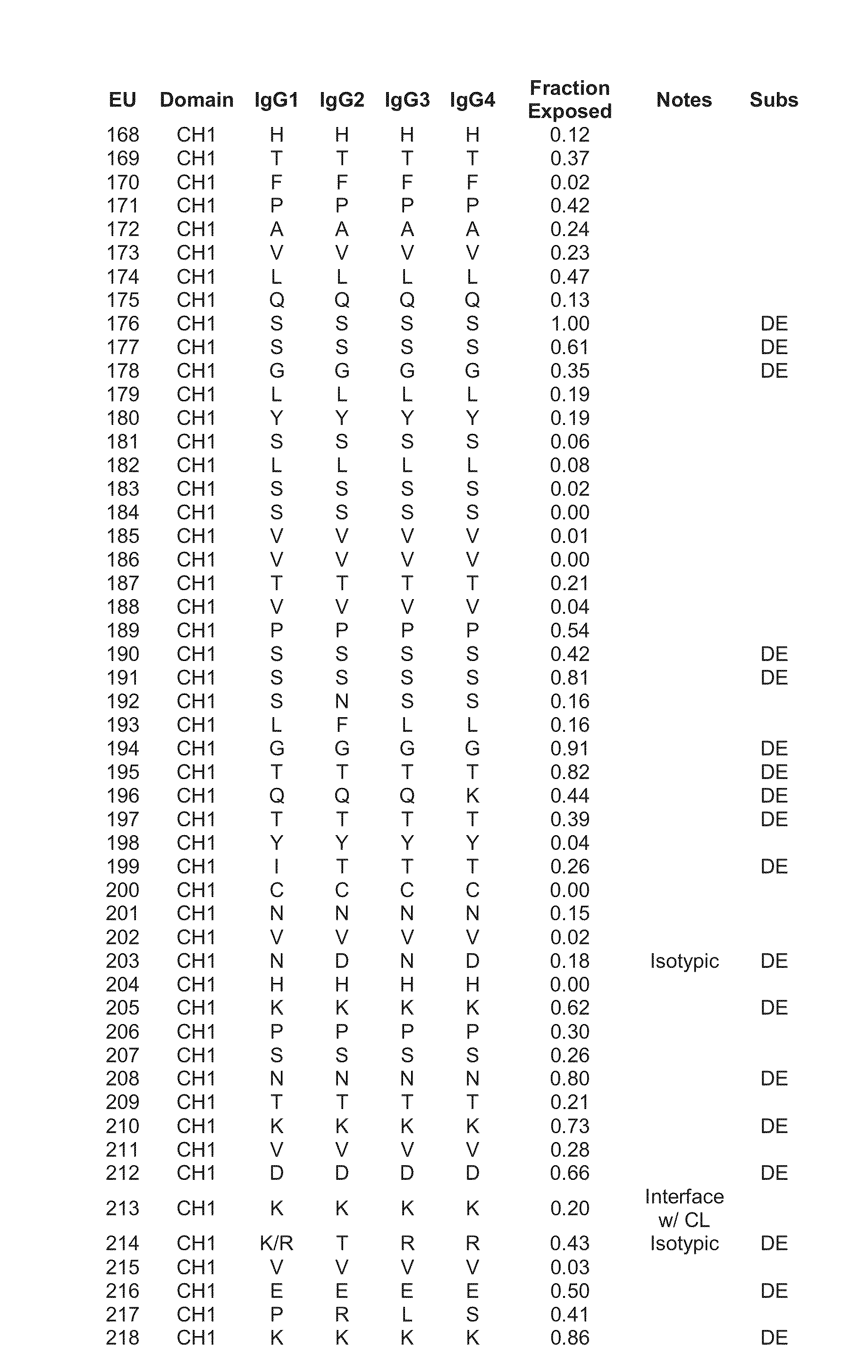Antibodies with modified isoelectric points
an antibody and isoelectric point technology, applied in the field of antibody isoelectric point alteration, can solve the problems of poorly understood mechanism of this, and achieve the effects of reducing pi, minimizing the possibility of immunogenic alterations, and increasing the serum half life of antibodies
- Summary
- Abstract
- Description
- Claims
- Application Information
AI Technical Summary
Benefits of technology
Problems solved by technology
Method used
Image
Examples
example 1
Design of Non-Native Charge Substitutions to Reduce pI
[0314]Antibody constant chains were modified with lower pI by engineering substitutions in the constant domains. Reduced pI can be engineered by making substitutions of basic amino acids (K or R) to acidic amino acids (D or E), which result in the largest decrease in pI. Mutations of basic amino acids to neutral amino acids and neutral amino acids to acidic amino acids will also result in a decrease in pI. A list of amino acid pK values can be found in Table 1 of Bjellqvist et al., 1994, Electrophoresis 15:529-539.
[0315]We chose to explore substitutions in the antibody CH1 (Cγ1) and CL (Ckappa or CK) regions (sequences are shown in FIG. 1) because, unlike the Fc region, they do not interact with native ligands that impact the antibody's pharmacological properties. In deciding which positions to mutate, the surrounding environment and number of contacts the WT amino acid makes with its neighbors was taken into account such as to m...
example 2
Anti-VEGF Antibodies with Engineered CH1 and CK Regions Having Lower pI
[0316]Amino acid modifications were engineered in the CH1 and CK domains of an IgG1 antibody to lower the pI of the antibody. Based on the above analysis, chosen substitutions for the heavy chain CH1 were 119E, 133E, 164E, 205E, 208D, and 210E, and substitutions for the light chain Cκ substitutions were 126E, 145E, 152D, 156E, 169E, and 202E. These variant constant chains are referred to as IgG1-CH1-pI(6) and CK-pI(6) respectively, and their amino acid sequences are provided in FIG. 4.
[0317]CH1 and CK variants were engineered in the context of an antibody targeting vascular endothelial factor (VEGF). The heavy and light chain variable regions (VH and VL) are those of a humanized version of the antibody A4.6.1, also referred to as bevacizumab (Avastin®), which is approved for the treatment of a variety of cancers. These variable region sequences are provided in FIG. 5. The anti-VEGF antibody variant containing the...
example 3
PK Analysis of IgG Constant Regions
[0324]PK studies of IgG1 and IgG2 isotype versions of bevacizumab were carried out in the huFcRn mice as described above. The IgG1 results from four separate PK studies are shown in FIG. 14. The half-lives from the four studies were 3.0, 3.9, 2.8, and 2.9 days, resulting in an average half-life of 3.2 days. The PK results from the IgG2 study are shown in FIG. 15. The half-life of IgG2 was 5.9 days.
[0325]The PK results from the IgG1 and IgG2 were analyzed with the results from the IgG1 / 2 and pI-engineered versions of bevacizumab. Table 2 shows the half-lives of the antibodies along with their calculated pI. These data are plotted in FIG. 16.
TABLE 2PK results of antibodies with identical Fv (bevacizumab) but constant regions with different pI'sAverageXENPIgGpIt 1 / 2 (days)4547IgG18.13.27349IgG1 / 28.12.96384IgG27.35.99493IgG1_CH-CL_pI_eng5.67.4[aka IgG1-pI (12)]
[0326]A correlation was observed between half-life and the pI of the antibodies. These data f...
PUM
 Login to View More
Login to View More Abstract
Description
Claims
Application Information
 Login to View More
Login to View More - R&D
- Intellectual Property
- Life Sciences
- Materials
- Tech Scout
- Unparalleled Data Quality
- Higher Quality Content
- 60% Fewer Hallucinations
Browse by: Latest US Patents, China's latest patents, Technical Efficacy Thesaurus, Application Domain, Technology Topic, Popular Technical Reports.
© 2025 PatSnap. All rights reserved.Legal|Privacy policy|Modern Slavery Act Transparency Statement|Sitemap|About US| Contact US: help@patsnap.com



